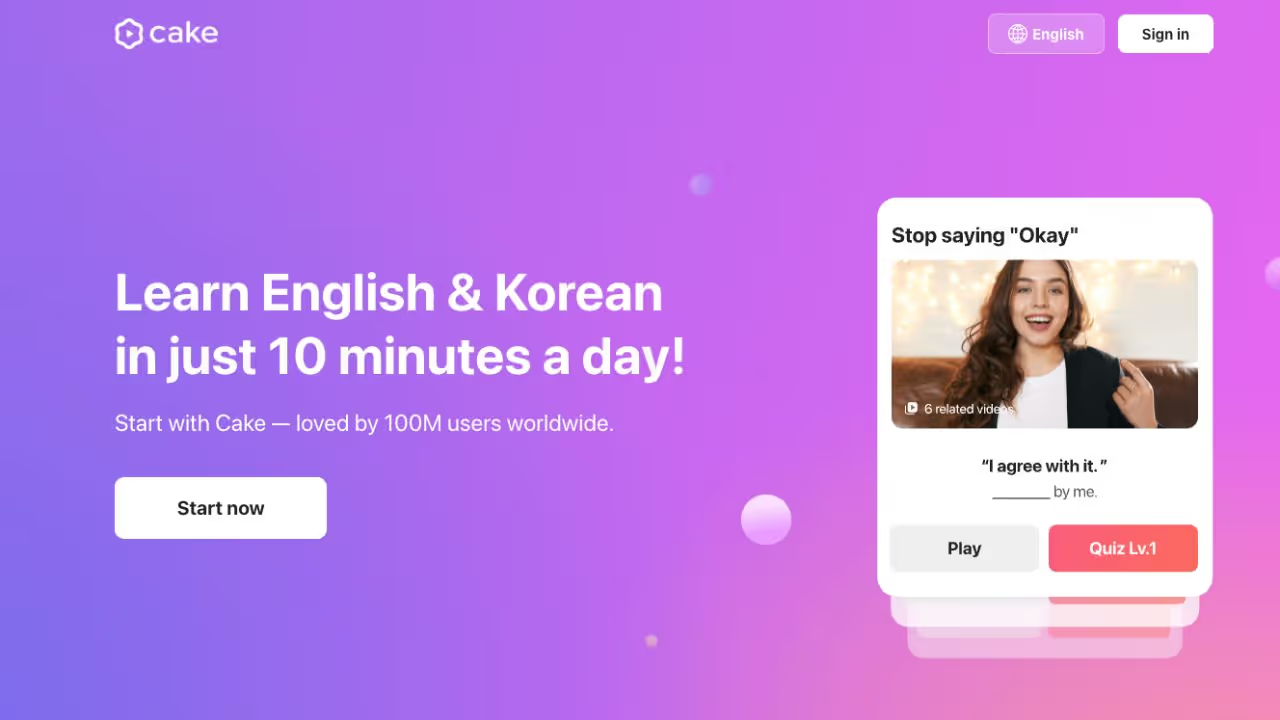Top 5 Japanese Student Picks for Language Learning Apps

Language learning apps are rapidly gaining popularity among students in Japan. These apps are widely used as tools to supplement classroom learning, prepare for entrance exams, or support study abroad and future career goals. The ability to study efficiently with just a smartphone is a key reason for their popularity.
In recent years, a growing number of apps have expanded beyond English to include languages such as Chinese and Korean, and learning methods have evolved far beyond simple vocabulary memorization to include pronunciation practice and conversation simulations. In this article, we introduce the top 5 language learning apps that are especially popular among Japanese students, clearly explaining their key features and appeal.
Popular Language Learning Apps for Students Ranked
- Duolingo
- Eigo Monogatari
- Study Sapuri ENGLISH
- Cake
- Hello Talk
1. Duolingo

Source: Duolingo Homepage
Duolingo is extremely popular among Japanese students as a fun and engaging language learning app that feels more like a game than a traditional study tool. It supports a wide range of languages, including not only English but also Chinese, Korean, Spanish, and many more, making it easy to learn multiple languages within a single app.
What makes it stand out are its quiz-style lessons and gamified features, such as scoring systems and streak tracking. These elements turn studying into play, helping even students who struggle with traditional learning stay motivated. The app also uses AI to analyze progress and adjust question difficulty, allowing users to improve efficiently. Once you create an account, you can sync your progress across both smartphones and computers, making it perfect for studying during short breaks or commutes.
2. Eigo Monogatari

Source: Eigo Monogatari Homepage
Eigo Monogatari is a unique app that blends the world of RPG gaming with English learning, earning strong support from junior high and high school students in Japan. Players travel across Japan, answer English quizzes to defeat monsters, and level up their characters as they go. The app covers a wide range of topics from basic grammar, vocabulary, and conversation to more advanced content, making it useful for both classroom learning and exam preparation.
One of its most praised features is the story-based progression, which helps students stay engaged without getting bored. The app also allows users to choose from detailed difficulty levels, making it easy to learn at their own pace. Its cute character designs and special in-game events further enhance the fun, earning high ratings in user reviews as an enjoyable way to study English.
3. Study Sapuri ENGLISH

Source: Study Sapuri ENGLISH Homepage
Study Sapuri ENGLISH is a comprehensive English learning app developed by Recruit and is widely used by both students and working professionals in Japan. Among students, the most popular features are the “Daily Conversation Course,” which teaches listening and speaking skills through drama-style storylines, and the specialized TOEIC preparation course.
The app offers clear, easy-to-follow video lessons by professional instructors, as well as dictation exercises and other tools to strengthen English skills from multiple angles. AI helps identify weak areas and suggests personalized training to enhance learning effectiveness. With speech recognition, users can also check their pronunciation, making it an excellent tool for improving speaking skills. Its short, focused lesson format fits perfectly into busy student schedules, whether between club activities or exam prep.
4. Cake

Source: Cake Homepage
Cake is an English learning app that uses YouTube and social media videos to make learning real conversation fun and effective. Its standout feature is the use of short video clips that teach natural phrases spoken by native speakers in everyday situations. From scenes in TV shows and movies to influencer quotes, the app exposes users to authentic English, which is one of the reasons it is so popular among Japanese students.
The videos come with subtitles, and the app features AI-powered tools that check pronunciation and help users practice their speaking skills. By listening, mimicking, and using the phrases, learners can develop practical, real-world English skills. Each lesson is very short, making it easy to build a daily habit and study during short breaks, which adds to the app’s appeal.
5. Hello Talk

Source: Hello Talk Homepage
HelloTalk is a language exchange app that allows users to learn through honest communication with people from around the world. It supports a wide variety of languages including English, Chinese, Korean, and Spanish, and is especially popular among Japanese students.
The app connects users with partners who speak different native languages, enabling them to practice natural conversation through chat and voice calls. One of its biggest strengths is the ability to get instant feedback, either from AI correction tools or native speakers who help revise grammar and phrasing. The “Moments” feature works like a social media feed, where users can share learning progress or ask questions, creating a supportive global community. As a tool for practicing real-life language skills that go beyond textbooks, HelloTalk is highly valued by students looking to improve their communication abilities in a practical way.
Conclusion
More and more students in Japan are turning to language learning apps to build practical communication skills that go beyond what textbooks can offer. The five apps introduced here each have their own unique features, allowing learners to choose based on their goals and study style. Whether it's using short breaks during the day to study or chatting directly with native speakers, the wide range of options available today makes it easier to find the right fit. Finding an app that suits your learning style is the first step toward mastering a new language. By using these apps to lower the barriers to learning, you can enjoy the process and steadily improve your language skills. By acquiring new language skills, you can also open up opportunities to take on new jobs such as translation and localization.















